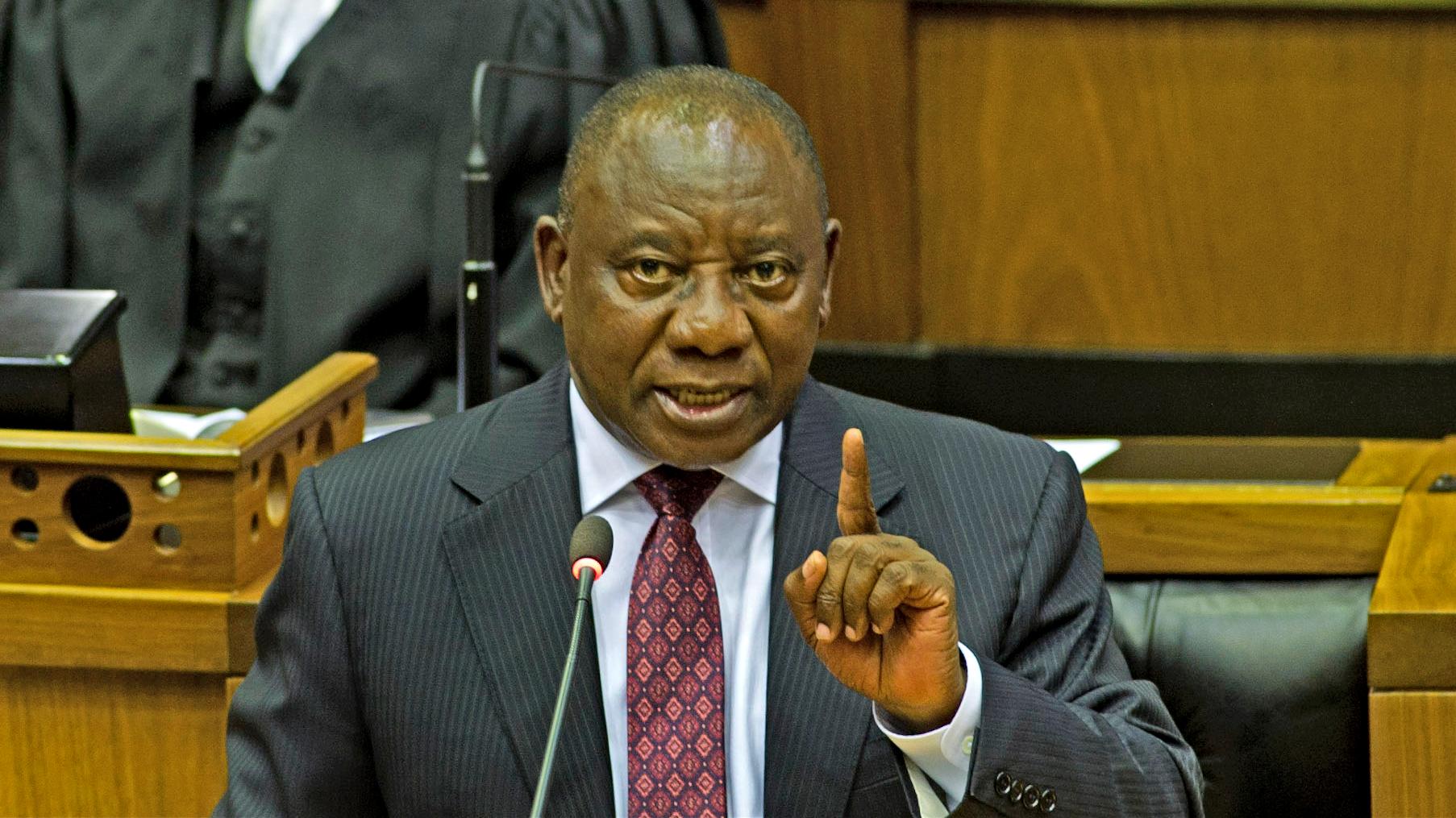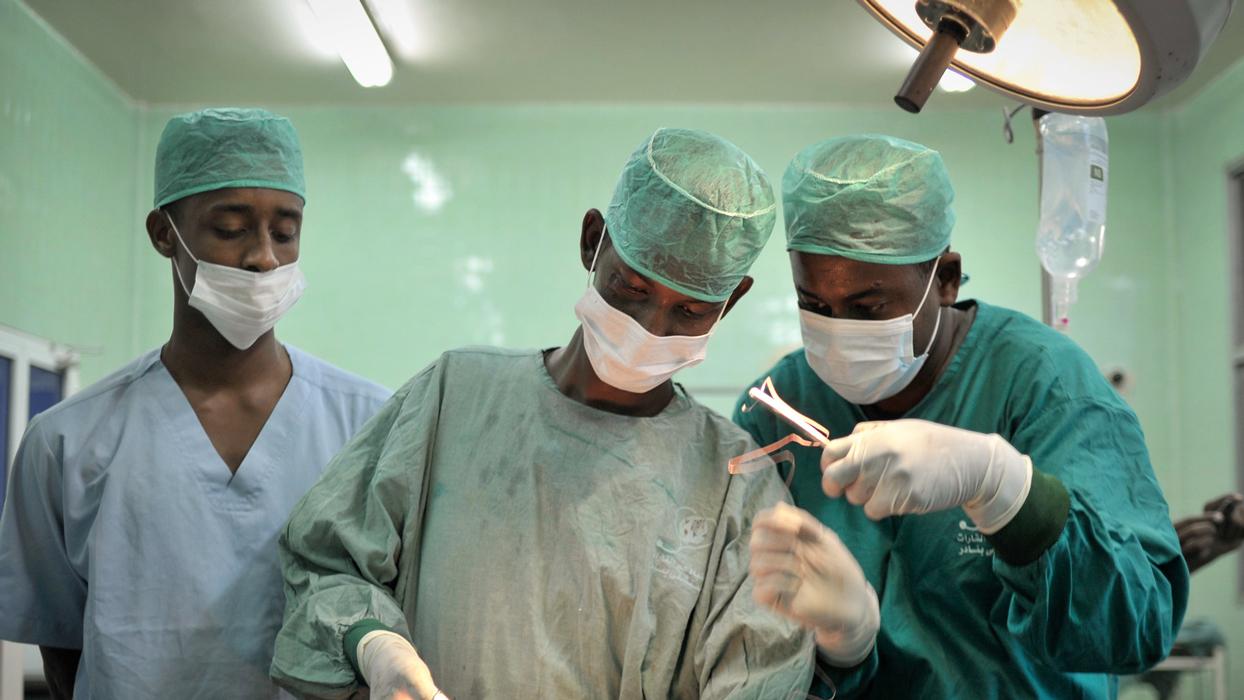The Covid-19 pandemic has exposed the fragilities of our global health systems, and the contrasting health infrastructures between countries, like Nigeria, constrained by development challenges. If a silver lining can be drawn from the spread of the pandemic – will African leaders progress from political will to political action in strengthening local health systems?
One challenge, multiple local realities
The COVID-19 pandemic has exposed the inadequacies in health systems of many countries globally. In high-income countries, Italy’s health care system is overwhelmed, the UK seems to be struggling to catch up with the rising number of cases, and there are doubts as to whether the United States’ market-based system will be able to respond effectively.
In low-income countries, the same exposure of health system weaknesses is also unravelling, but there is another dimension: how the responses and recovery trajectories beyond the pandemic intertwine with development realities. Across sub-Saharan Africa, the reality and feasibility of countries being able to deploy strategies that have proved effective elsewhere – which include testing, tracing, adopting and enforcing social distancing, timeous decision-making to stop economies from free-falling, and engagement of the private sector – all intertwine with unwieldy historical and contemporary development realities of endemic exclusion and inequality.
Local realities for a global challenge: the case of Nigeria
Nigeria, Africa’s largest economy and most populous country, finds itself at the throes of these realities. It is likely that Nigeria’s health care system will be overwhelmed, and it will be crucial to see how the measures that have worked elsewhere will work in the Nigerian context. As of 03:30 WAT (02:30 GMT) on Tuesday 31 March 2020 there had been 131 confirmed coronavirus cases and two deaths in Nigeria. Eight people in the country have recovered after contracting Covid-19, and Nigerian president Muhammadu Buhari ordered lockdown in both Lagos and Abuja late on Sunday night, 29 March.
These numbers are rapidly evolving and as is the case in many countries, including high-income countries, the situation has a worrying backdrop in that there could be thousands more individuals exposed but are yet to be tested. There is little evidence to show that the Nigerian Centre for Disease Control (NCDC) is conducting sufficient contact tracing because the numbers of tested individuals is not being published. There is already little trust in the government, which exacerbates uncertainty and mistrust in the work that the NCDC is doing. It has become clear from elsewhere that speed of action matters, especially at the containment phase when numbers of cases are still relatively low, and there is a higher chance of being able to trace and isolate infected individuals.
Relatedly, COVID-19 has so far taught countries that there is no need to ‘re-invent the wheel’ of measures to deploy, but to tailor them to national and local contexts. In this regard, Nigeria already has countries that are further ahead in dealing with this pandemic to learn from, and the added advantage of lessons of its own quick and efficient response to Ebola. The World Health Organisation (WHO) declared this response a feat of world class detective epidemiological work, but the same cannot be said for the response to COVID-19, which compared to Ebola has a higher rate of transmission. This makes contact tracing particularly important because there is fluid movement of people in the country in the backdrop of cultural, social and religious practices that encourage communal living.
Intertwined with the nationwide lack of adequate resources and infrastructures needed to treat patients, the imperative for public health measures anchored on early intervention and tracing could not be more urgent. Lessons from the Ebola outbreak could (and should) be handy in this dimension.
The effects of historical lack of political will to ensure proper investment into health systems and health-related industries are being laid bare by COVID-19 across Africa, and Nigeria is no exception. The Nigerian government currently invests just 4% of its federal budget on healthcare. This is less than the agreement made by member states of the African Union during the Abuja declaration in 2001 to increase their health budget to at least 15% of countries annual budget. South Africa, the second largest economy in Africa, has consistently allocated over 10% of total government spending over the last five years to healthcare. As Julius Mugwagwa says in his recent blog, COVID-19 should be a wake-up call to investing in local health systems in every nation.
Part of the grim reality of little investment in the health sector is that Nigeria has a total of five hospital beds per 100,000 people and less than 500 ventilators (most of which are in private hospitals). However, most COVID-19 cases are treated by government hospitals as they have the treatment and testing guidelines provided by the WHO for the pandemic. A further complication is that Nigerian doctors are currently on strike due to poor pay and conditions, an all-too-familiar story in other African countries. There are as yet no designated quarantine spaces for patients who have COVID-19 in some parts of Nigeria. So, most patients are placed in public hospitals, which increases the risk of transmission.
Good health for all should be an everyday target
With countries closing their borders and citizens, rich or poor, having to resort to local providers for their treatment needs for COVID-19, and other persistent health challenges, perhaps the silver lining from this pandemic is that African leaders may now be spurred from ‘political will to political action’ towards strengthening local health systems. This could even give new impetus towards attainment of Sustainable Development Goal 3 on health and well-being for all.
Yet, it should not take a failure to access health systems or other social services for leaders to realise the importance of developing and sustaining local capabilities. The pervasive and integrative nature of the health sector is an enduring reality, which at the moment is manifesting in the way economies are in free-fall as a result of health system fragilities. On the other hand, before and beyond pandemics like COVID-19, a vibrant health sector is always good for other sectors of the economy as a consumer of products and services and, above all, through manning the frontline which ensures that economies have a healthy workforce to draw on.
This is a key moment for responsible leadership. After all, how health-secure the global space is depends on strong national health systems and allied sectors, on which the current coronavirus pandemic is a loud reminder.
Photo: AMISOM Provides Free Medical Services to Displaced Somalis. Credit: Stuart Price. Licensed under creative commons (CC BY-NC-ND 2.0).






This is a factual write-up. 👏👏👏
This is very true! Will consider this moving forward 🙂
Yeah can say that Covid-19 has taught us why should we take care of our health everyday to avoid serious health issues.
The emergence of Covid-19 has served as a powerful reminder of the importance of prioritizing our health on a daily basis to prevent serious health complications. The global pandemic has highlighted how vulnerable we can be to infectious diseases and the profound impact they can have on our lives.
Covid-19 has underscored the significance of maintaining a strong immune system, practicing regular hygiene measures, and adopting a healthy lifestyle to safeguard ourselves and those around us from the detrimental effects of viral outbreaks. It has emphasized the need for preventive measures such as regular exercise, balanced nutrition, adequate sleep, stress management, and vaccination.
By heeding the lessons imparted by Covid-19, we are not only protecting ourselves from immediate health risks, but also fortifying our long-term well-being and resilience against future health challenges. Taking care of our health every day is an investment in ourselves, our loved ones, and our communities, ensuring that we can lead vibrant, fulfilling lives even in the face of adversity.